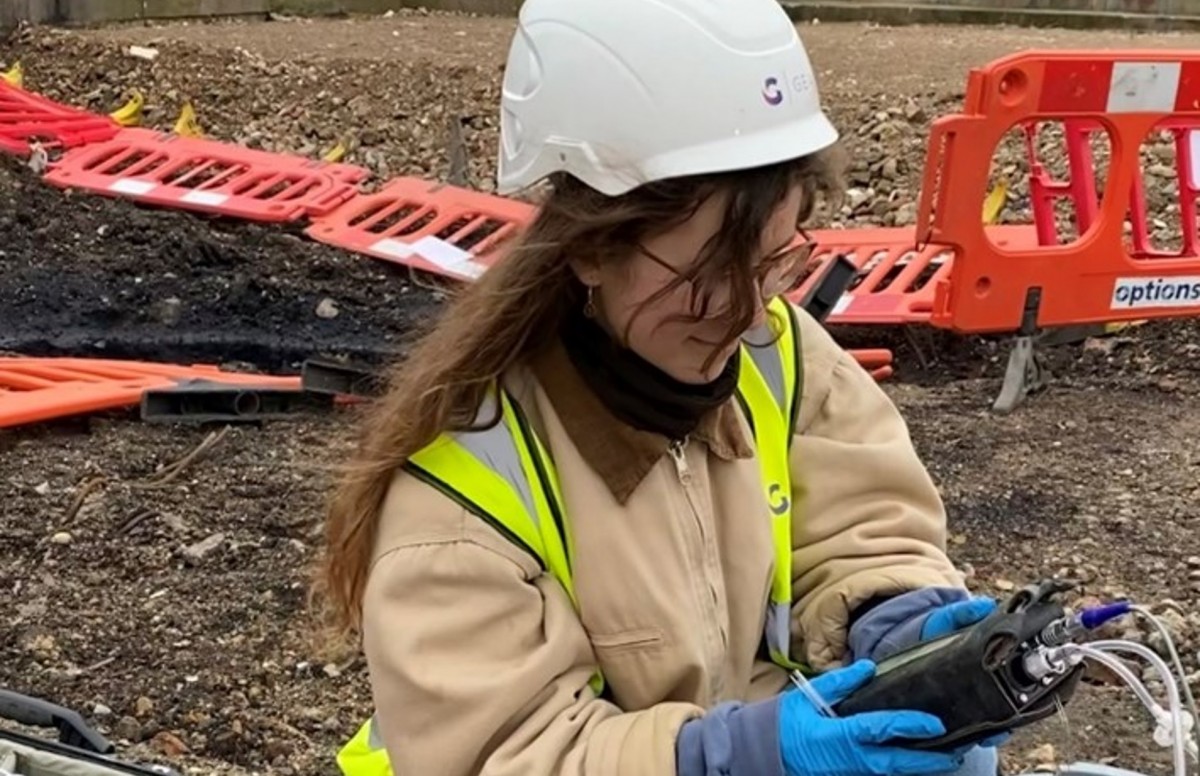The 5-Second Trick For Geotheta
The 5-Second Trick For Geotheta
Blog Article
Indicators on Geotheta You Should Know
Table of ContentsSome Known Factual Statements About Geotheta The Geotheta StatementsThe Single Strategy To Use For GeothetaLittle Known Questions About Geotheta.The Single Strategy To Use For Geotheta

They perform site investigations, accumulate samples, carry out research laboratory tests, and examine data to assess the viability of the ground for building and construction projects - Geo Tech Engineer. Based on their searchings for, geotechnical engineers give referrals for foundation layout, slope security, maintaining structures, and mitigation of geotechnical dangers. They collaborate with various other specialists, such as engineers, architectural designers, and building teams, to make certain that geotechnical considerations are incorporated right into the overall job design and application
By evaluating the habits and residential or commercial properties of soil and rock, they can determine prospective geotechnical risks such as landslides, soil settlement, or slope instability. Their experience aids prevent failures or mishaps that could threaten lives and residential property. Here are some in-depth obligations and obligations of a geotechnical designer: Website Examination: Geotechnical designers conduct site investigations to gather information on subsurface problems.
They analyze the data to comprehend the homes and actions of the soil and rock, including their toughness, permeability, compaction characteristics, and groundwater conditions. Geotechnical Evaluation and Layout: Geotechnical engineers analyze the data gathered during site examinations to evaluate the security and viability of the site for construction jobs. They perform geotechnical calculations and modeling to assess aspects such as birthing ability, negotiation, slope stability, lateral planet stress, and groundwater flow.
The Ultimate Guide To Geotheta
Foundation Design: Geotechnical designers play a vital role in developing foundations that can securely sustain the intended structure. They evaluate the soil conditions and tons needs to determine the appropriate foundation kind, such as superficial structures (e.g., footings), deep structures (e.g (https://issuu.com/geotheta)., heaps), or specialized techniques like soil improvement. They think about aspects such as settlement limits, bearing capability, and soil-structure interaction to develop optimum foundation designs
They review building strategies, screen site tasks, and carry out field examinations to confirm that the design referrals are followed. If unanticipated geotechnical concerns arise, they assess the circumstance and supply referrals for remediation or modifications to the design. Threat Analysis and Mitigation: Geotechnical designers examine geotechnical hazards and dangers related to the task website, such as landslides, liquefaction, or soil disintegration.

Partnership and Interaction: Geotechnical designers work carefully with various other specialists entailed in a job, such as engineers, structural designers, and building and construction teams. Reliable interaction and partnership are necessary to integrate geotechnical considerations into the general job design and construction procedure. Geotechnical engineers give technical know-how, solution questions, and ensure that geotechnical requirements are satisfied.
How Geotheta can Save You Time, Stress, and Money.
Here are some kinds of geotechnical engineers: Foundation Engineer: Foundation engineers specialize in designing and assessing structures for frameworks. They analyze the dirt conditions, his response tons needs, and website attributes to identify the most appropriate structure kind and layout, such as shallow foundations, deep foundations, or specialized techniques like heap foundations.
They evaluate the aspects affecting incline security, such as dirt residential or commercial properties, groundwater conditions, and incline geometry, and establish methods to protect against slope failings and reduce threats. Earthquake Engineer: Earthquake designers focus on assessing and designing structures to withstand seismic pressures. They assess the seismic risk of a website, review dirt liquefaction potential, and create seismic layout requirements to guarantee the security and resilience of structures throughout quakes.
They perform area testing, gather examples, and evaluate the accumulated information to identify the soil buildings, geologic developments, and groundwater conditions at a website. Geotechnical Instrumentation Engineer: Geotechnical instrumentation designers concentrate on monitoring and determining the actions of soil, rock, and structures. They mount and keep instrumentation systems that check factors such as dirt settlement, groundwater levels, slope activities, and structural displacements to examine performance and give very early cautions of prospective concerns.
10 Simple Techniques For Geotheta
They conduct examinations such as triaxial tests, consolidation examinations, straight shear tests, and leaks in the structure tests to gather data for geotechnical analysis and design. Geosynthetics Designer: Geosynthetics engineers focus on the layout and application of geosynthetic products, such as geotextiles, geogrids, and geomembranes. They make use of these products to boost soil security, reinforce slopes, supply water drainage remedies, and control erosion.
They have a tendency to be investigative people, which suggests they're intellectual, introspective, and curious. They wonder, systematic, logical, analytical, and rational. Some of them are likewise social, implying they're kind, charitable, cooperative, client, caring, handy, understanding, skillful, and pleasant. Does this sound like you? Take our totally free profession test to figure out if geotechnical engineer is just one of your top career suits.
In the office atmosphere, geotechnical engineers use specialized software tools to do estimations, produce designs, and analyze information. They prepare reports, testimonial project requirements, interact with clients and team members, and coordinate project tasks. The office setting supplies a conducive environment for study, evaluation, and partnership with other specialists entailed in the project.
Facts About Geotheta Revealed
They often visit task websites to conduct site investigations, assess geotechnical conditions, and collect information for evaluation. These gos to involve traveling to different locations, sometimes in remote or difficult terrains. Geotechnical engineers might carry out soil tasting, conduct tests, and display construction activities to guarantee that the geotechnical aspects of the task are being executed appropriately.
Geotechnical engineers also operate in specialized geotechnical laboratories. In these centers, they perform experiments, execute tests on soil and rock examples, and assess the design properties of the materials. Geotechnical research laboratory engineers work extensively in these environments, dealing with screening devices, running instruments, and taping information. They collaborate with other laboratory personnel to make certain exact and reputable screening results.
Report this page